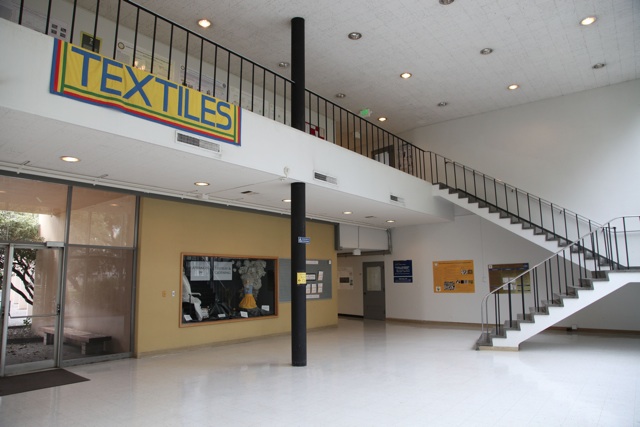The Undergraduate Council at UC Davis rejected a proposal to suspend admissions to the Textiles and Clothing program Feb. 15. The program is currently undergoing a review by the Academic Senate’s Undergraduate Instruction and Program Review Committee (UPR).
The Textiles and Clothing program is part of the College of Agricultural and Environmental Sciences (CAES) and heads two majors: textiles and clothing and fiber and polymer science.
The program offers a number of classes for both graduate and undergraduate students. The division offers students the opportunity to earn a bachelors, masters or Ph.D. It is unique for a college program and the only one of its kind in the entire UC system, according to the Textiles and Clothing website.
“The unique strength of our program derives from disciplinary expertise in areas ranging from fiber chemistry, polymer science and textile engineering to consumer psychology and cultural studies as well as its interdisciplinary perspective on commodity-relevant issues,” the Textiles and Clothing website states.
Former graduate student in the Textiles and Clothing division, Margot Bennet, attributes her success in finding a job as a production assistant now to her time in the program.
“What I think is so extraordinary about our department is that we represent the importance not just of clothing but of textiles and the range of textile applications,” Bennett said in an email interview. “Textiles cross over with the agricultural sector, the chemicals industry among others, and have roots in the California economy. I think having a strong academic research program textiles is a no brainer and where better than at UC Davis?”
The range of topics covered in the program also allows for research to be conducted on an international level. The program is part of the National Textile Center, which is a federally funded university-research and graduate-education consortium.
“We have conducted research that has benefited hospitals, firefighters and fire safety; agricultural workers including pesticide applicators and customs workers, and as such have contributed to the public good on a state, national and global level,” Bennett said.
This is the second year in a row that the Textiles and Clothing division has been selected by the College of Agricultural and Environmental Sciences to possibly have its admissions suspended.
Concerns about the program brought to light in 2009 included the division’s small size and small number of faculty, as some were worried it would not be sustainable at UC Davis. Similar concerns about fewer amounts of students and faculty as well as lack of adequate lab space in a time when resources are limited were echoed by the UPR in 2012, sparking a motion to suspend new admissions to both majors in the Textiles and Clothing program.
“Funding is complicated with different types of money coming in at different times,” said department chair Margaret Rucker in an email interview. “Funding has been very much reduced lately due to the financial difficulties being experienced here in California.”
According to Tom Kaiser, Executive Assistant Dean of Administration in the College of Agricultural and Environmental sciences, the state general funding budget for the textiles and clothing department this year is $889,035. The college of agricultural and environmental sciences received $78,867,151 in state budget funding this year with a $1,720,000 reduction.
As of now, the Textiles and Clothing division is not in immediate danger of being shut down.
“At Friday’s Undergraduate Council meeting, we considered and rejected a proposal to suspend admissions to the major. We did the same thing last year, at which time we called for an expedited review of Textiles and Clothing,” said Matthew Traxler, Undergraduate Council chair, in an email interview. “Currently, there is no plan to either close the major to new students or to shut it down.”
If a proposal to close the majors altogether is ever suggested in the future, the process for closure will still not be simple.
“The formal process makes it possible to disestablish a major, but not without broad consultation and agreement or without careful planning so as to minimize the negative impact on current students, staff and faculty that could otherwise accompany a closure,” said Bruno Nachtergaele, Academic Senate chair, in an email interview. “A lot of thought, effort and resources go into creating and running a major. We cannot be cavalier about the process to disestablish one.”
LAUREN MASCARENHAS can be reached at campus@theaggie.org.










[…] Textiles and clothing major withstands motion to close admissionsThe AggieThe Undergraduate Council at UC Davis rejected a proposal to suspend admissions to the Textiles and Clothing program Feb. 15. The program is currently undergoing a review by the Academic Senate's Undergraduate Instruction and Program Review … […]